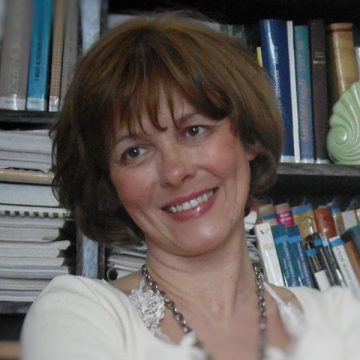Curriculum Vitae
Mónika Mátay (PhD 2003) is an Associate Professor at the Institute of History at Eötvös Loránd University and a permanent fellow at iASK, Kőszeg. She has been visiting scholar at several higher educational institutions, including the State University of Rutgers, New Jersey, Humboldt University, Berlin, Central European University, Budapest, University of Trieste, among others. She has taught international students in the Erasmus Program, the Education Abroad Program of the University of California and at ISES in Kőszeg. She has done several research projects on modern social and cultural history, human inheritance (talkinghouseseurope.com), the history of crime (arsenic poisoning epidemic in interwar Hungary), marginalized social groups, gender and the media. Her list of publication includes a monograph on private conflicts between men and women, edited volumes on crime in turn of the century Budapest, book chapters and articles on various topics from reviewing the modern European public sphere to the role of Hungarian highwaymen. She has received several scholarships, including the National Excellence Scholarship, TÁMOP, the Bolyai Research Scholarship, Hungarian Academy of Science, the Summa Artium Scholarship for book publication, and George Soros scholarships. She also serves as the founding member of the Gender Studies Centre at ELTE and she is editor of the quarterly academic journal, Médiakutató (Media researcher).
Research program
While walking around in cities ordinary houses usually remain silent, do not talk the ways they potentially could about those people who had been living there. This is also the case with the beautiful palaces of Kőszeg where many episodes of private stories are unexplored. During my research I reconstruct individual life stories of those who had once inhabited the historical buildings of the city. I investigate the owners and other inhabitants, tenants, maids and children and try to learn about the nuanced details of their biography, decisions, success and failures, and about the way how their fashioned their life. I apply interdisciplinary approach through integrating the methods of social and cultural history, historical anthropology and sociology. During my research an attempt will be made to reconstruct the everyday routines of the inhabitants, their physical movements, the way how their used public space, communication and lifestyle as precisely as the archival sources allow me to do that. I also build a data base of former inhabitants of Kőszeg, so my inquiry opens up novel ways of connecting social history and network analysis. My long-term plan is to extend the work to other Hungarian, and in the long run, European urban communities.
iASK-question
How the fashioning of individual life is part of human and cultural inheritance?
